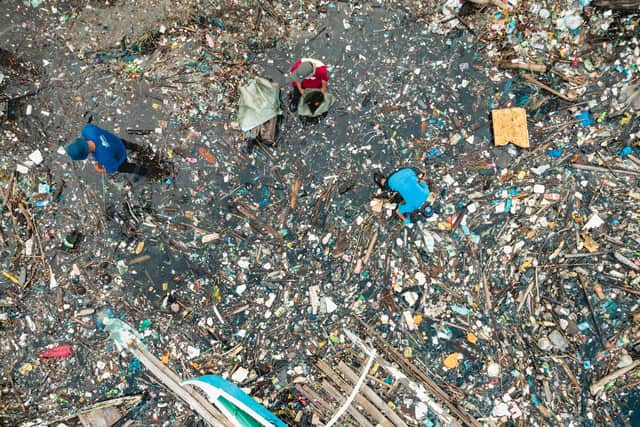Whatever happened to ‘Reduce, reuse and recycle’ when it comes to plastic waste? - Yorkshire Post Letters
Like many households, between March 11 and 17, we counted all the plastic we put in the recycling or waste bin as part of The Big Plastic Count, the UK’s biggest investigation into household plastic waste.
When I submitted our results, I discovered that on average only 11 per cent of our plastic waste is recycled within the UK, 10 per cent is exported, mostly to Turkey, 13 per cent is landfilled and 66 per cent is incinerated.
Advertisement
Hide AdAdvertisement
Hide AdAnd then there is all the plastic which litters our streets and green places, which didn’t even make it to someone’s bin to be counted.


Back in 2019, Hugh Fearnley-Whittingstall and Anita Rani in the BBC’s ‘War on Plastic’ series showed us images of other parts of the world which are blighted by plastic waste which originates from the UK.
Why should we export our waste for other countries to deal with, particularly when they don’t have the capacity to do so?
Landfilling plastics leads to problems with toxic gases and with wind and rain dispersing microplastics to surrounding areas. And incineration of plastic generates carbon dioxide contributing to global warming and potentially other toxins and pollutants if the process is not very tightly controlled.
Advertisement
Hide AdAdvertisement
Hide AdSo what should we do? What happened to ‘Reduce, Reuse, Recycle’ when it comes to plastic? The priority must be to reduce the creation and use of single-use plastic.
The charity Wrap has done extended research with the food industry which demonstrates that selling fresh fruit and vegetables encased in plastic not only results in more plastic waste but also in more food waste. As 60 per cent of all food waste occurs in the home, this needs tackling and is a potential win-win.
Jayne Paramor, the technical manager for plastic at Wrap, has said that government delays in regulation have been a big factor in slowing the industry’s efforts on soft plastic packaging. Government delays in enacting legislation to benefit the environment? Surely not.
Negotiations for a Global Plastic Treaty have started, with the goal of completing the process this year.
Advertisement
Hide AdAdvertisement
Hide AdSo if, like me, you are fed up with having to recycle or waste so much plastic that you would rather not have had to bring into the house in the first place, please sign the Greenpeace petition to Steve Barclay, Secretary of State for Environment, Food and Rural Affairs, demanding that the UK begin to tackle the global plastic pollution problem by working hard for a strong Global Plastics Treaty. https://action.greenpeace.org.uk/global-plastic-treaty
Comment Guidelines
National World encourages reader discussion on our stories. User feedback, insights and back-and-forth exchanges add a rich layer of context to reporting. Please review our Community Guidelines before commenting.
